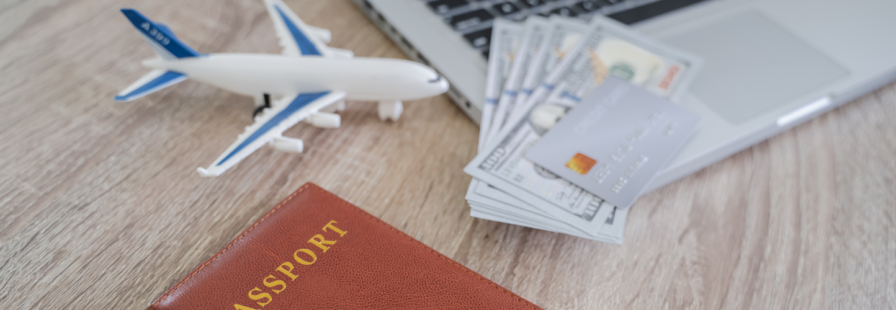Booking smarter and more efficient business trips

Booking corporate travel is no easy task and usually involves a lot of research prior to booking; sourcing the best flights, more suitable hotels and cultural and logistical information about the destination.
But is there a more efficient way to book corporate travel?
There definitely is, which is why we’ve collated the advice and best practices of ATPI Corporate Travel’s experts in this article:
Tip 1: Plan ahead
Did you know that booking your plane tickets early can sometimes save you a significant amount? According to research, the days of last-minute deals are over. On average, airfares are cheaper if booked earlier – exactly how early depends on the destination and the airline. We understand that it isn’t always possible to book meetings or business trips weeks in advance, but the dates of some events or conferences are made public long before the time of travel. So, go ahead and arrange business trips as quickly as possible and benefit from the savings.
Tip 2: Extend the business trip
Sometimes it can be more cost-effective to make a business trip longer than is strictly necessary. For example, you can add a private trip. This way the traveller can fly back on a cheap day and the organisation can save money. Within Europe, three nights is sometimes cheaper than one or two (Air France/KLM) and plane tickets for Saturday night/Sunday morning are less expensive.
Tip 3: Get the right traveller information
The more information on traveller or business preference you can collect, the better. For example, is a traveller very flexible in terms of travel dates? If so, that can give big savings (see tip 2). Information about where the traveller has to be at the destination, who will be travelling and which price is preferable is also relevant at this stage. Do they want a flight that includes luggage or a paid seat? A TMC will need to know this information before booking corporate travel in order to provide travel options more efficiently, so it’s worth adopting this practice.
Tip 4: Look for frequent flyer benefits
Are there frequent flights to the same destination, or with the same airline? Then look at the possibilities offered by a particular airline’s frequent flyer programme. This quickly results in privileges for the traveller, such as a discount on a seat reservation or luggage.
Tip 5: Choose a flexible ticket
We regularly note that travellers are more likely to choose the cheapest airline ticket, even though it cannot be changed. Here, the following rule applies: cheap tickets can sometimes work out to be the most expensive. If you want to change the ticket for this traveller, you’ll have to buy a completely new airline ticket, while a flexible ticket within Europe is often only about 50 euros more. Play it safe and choose a flexible ticket whenever possible.
Tip 6: Be wary of hidden costs
What should you pay attention to when booking a good hotel for a business trip? A lot of people book a hotel purely on the basis of basic room prices and the conference package. In doing so, hidden additional costs are often not considered, such as parking or taxi costs, breakfast or the tourist tax. The fixed costs are paid by the organisation, but all the extras at the# hotel are put on the company credit card (per person). As a result, it is not clear what a hotel stay ultimately costs per person. In order to get an idea of the total costs, it may help to have hotel stays booked by an external party.
Tip 7: Consider other airports
A lot of business travellers opt for convenience and want to get from the nearest airport to the most conveniently located destination airport. However, sometimes it can be more cost-effective to look for alternatives. Consider other departure airports, such as Rotterdam, Eindhoven or Maastricht, or a transfer to Düsseldorf or Heathrow. Or an airport near the final destination, such as the local airport at Girona instead of Barcelona. It is not always possible, but the more flexible the traveller, the cheaper the trip.
Tip 8: Combine tickets
It can be a good idea to combine multiple travel routes to European and intercontinental destinations. This gives you a lower rate per journey, resulting in savings of no less than 15 to 20% per combination. Make a plan at the beginning of the year and ask your travel agent to find out whether these tickets can be combined to your advantage.
Tip 9: Be careful with online prices
Ticket prices often seem cheap online, however it’s only when you click through to the actual ticket provider that you can see whether or not the desired ticket is actually available. Also, there are often a lot of invisible costs, such as costs for luggage or a seat reservation. Look carefully at the price conditions to get a clearer picture of the costs that are beneficial.
Tip 10: Book a transfer on the account
A lot of business travellers take a taxi from the airport to the hotel. However, there are a number of risks associated with this. What do you think about taxis that deliberately drive around a block in order to increase the fare? Or taxis that do not have a meter at all – and the journey suddenly turns out to be much more expensive than agreed upon in advance. It may be useful then to book a transfer in advance at an arranged price that is passed on to your company. This way the costs are transparent and everything is well organised for the traveller.
Tip 11: Choose the train instead of the plane
Is a lot of your organisation’s travel done within Europe – to Paris or London, for example? If so, travelling by train can sometimes be more efficient than travelling by plane. The traveller arrives directly in the city centre and saves time because they do not have to wait for their luggage, the gate and passport control. In addition, they can work undisturbed during the trip and save on transfer costs.
Tip 12: Work with a TMC
A TMC has infinitely more experience in booking corporate travel. For example, our travel consultants know how multiple tickets can be combined to even greater advantage, which routes you should employ and the best way to structure a ticket. All of this creates additional savings without an organisation even having to ask. In addition, working with a TMC saves you a lot of time as a booker on business trips, which you can then spend on finishing the rest of your to-do list.








